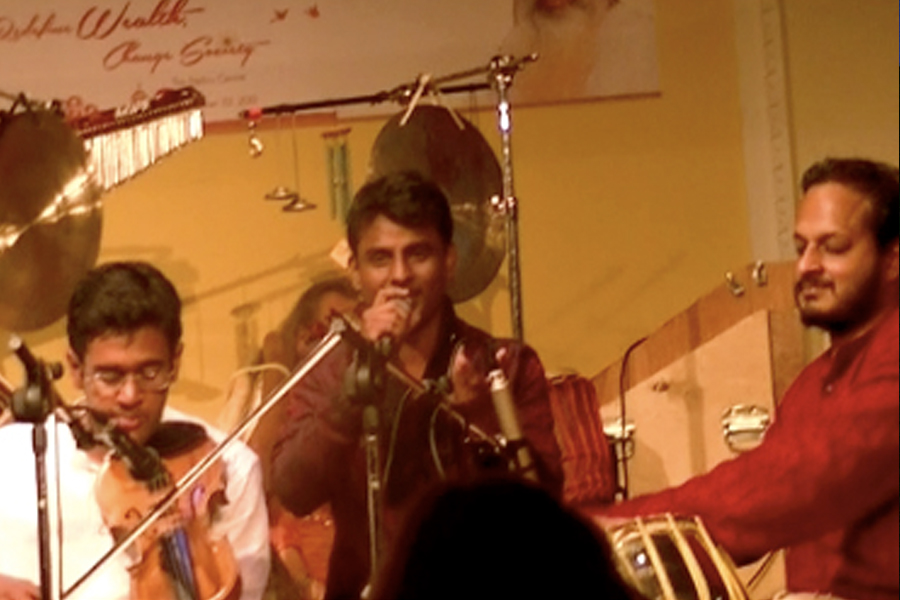
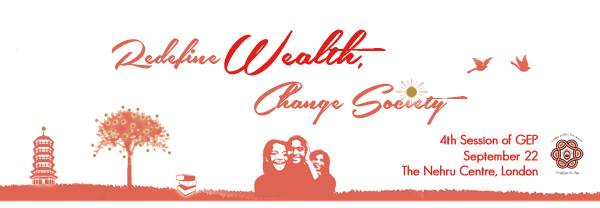
The fourth Global Energy Parliament was held in London on 22 September 2013 at the Indian High Commission to UK’s cultural wing, the Nehru Centre. The function was inaugurated by Dr. M.N. Nandakumara, Executive Director, Bharatiya Vidya Bhavan of London, and the Special Address was given by Ms. Sangeetha Bahadur IFS, Director of the Nehru Centre UK.
Dr. M.N. Nandakumara, Executive Director, Bharatiya Vidya Bhavan of London inaugurated the session by lighting a lamp, and recited a prayer for mankind to act as one family and to work in the spirit of sacrifice and service, so that peace would prevail.
Ms. Sangeetha Bahadur IFS, Director of the Nehru Centre UK delivered the Special Address. She welcomed everybody to the premises of the Nehru Centre, expressing her expectation for productive and fruitful discussions on redefining wealth to overcoming the financial crisis that the world is finding itself in.
Dr. Folker Meissner, Acting Speaker of the Parliament 2013 (Chairman, GEP Germany and Founder and Chairman of the German Academy for Energy Medicine and Bioenergetics-DAEMBE) gave the Presidential Address.
Dr. Prem Nair, Specialist Oral Surgeon and Clinical Lead And Honorary Lecturer Cambridge University Hospital, was presented with the GEP Award 2013 for his commitment to creating a better community economy through his medical practice.
H.H. Swami Isa, Founder of the GEP, gave the Invocation Address, in which he provided a detailed introduction to the “I theory” and its role in creating a sustainable world through a better scientific understanding of energy balance. He spoke also about economic sustainability, and the need to broaden the definition of wealth to include all aspects from knowledge to health, in order to achieve a more realistic picture of what the global economy is, and how to enable transactions without exploitation of human or natural resources. The current definitions of economic success are coming at the expense of true happiness and the earth’s resources, both of which should be considered higher forms of wealth. Swami Isa called for a new financial system to be made based on external and internal wealth. He called for a universal system of currency, universal definitions of wealth, and international collaboration towards a sustainable economy. A short video presentation was made on this topic.
|
|
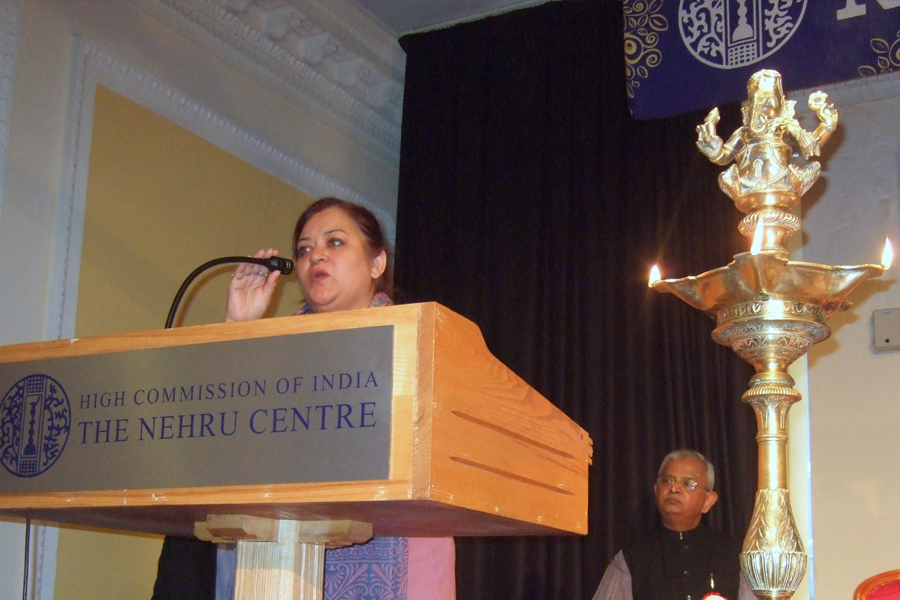 |
There were fourteen submissions made by Members of the Global Energy Parliament in a variety of topics, including:
Health: Dr. Folker Meissner gave his suggestions for achieving a sustainable future for healthcare. His proposals to Parliament were to integrate mandatory study of philosophy (philanthropy) as well as personal development in medical education. He further emphasized the importance of training and supporting patients to achieve self-responsibility to prevent them from becoming patients at all, and a Focus on prevention rather than profit or treatment. Dr. Uwe Reuter, Medical Director, Im LEBEN Clinic, Greiz, Germany presented “The Wealth of Health: How It Can Contribute to a Sustainable Economy.” He discussed the individual’s need for connection to one’s self, society and the universe at large which are missing and can lead to diseases, especially cancer.
Law: James Carr, Barrister, said that GEP’s Human Legal Research Project, which promotes a change in legal perspective toward viewing those who have committed a crime as having a disease and providing treatment, would be very effective in promoting a sustainable system and in reducing the amount of cost to society, both financially and otherwise. Suresh Unnikrishnan, Advocate and Founder, Krish Morgan Law (UK), gave a legal perspective on the wastage of money and human life in legal battles that leads to economic problems.
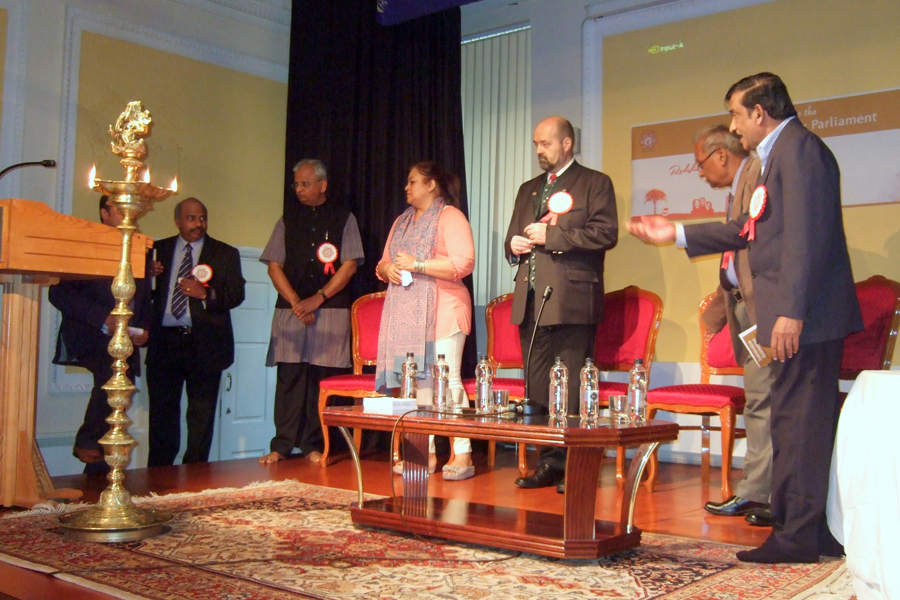 |
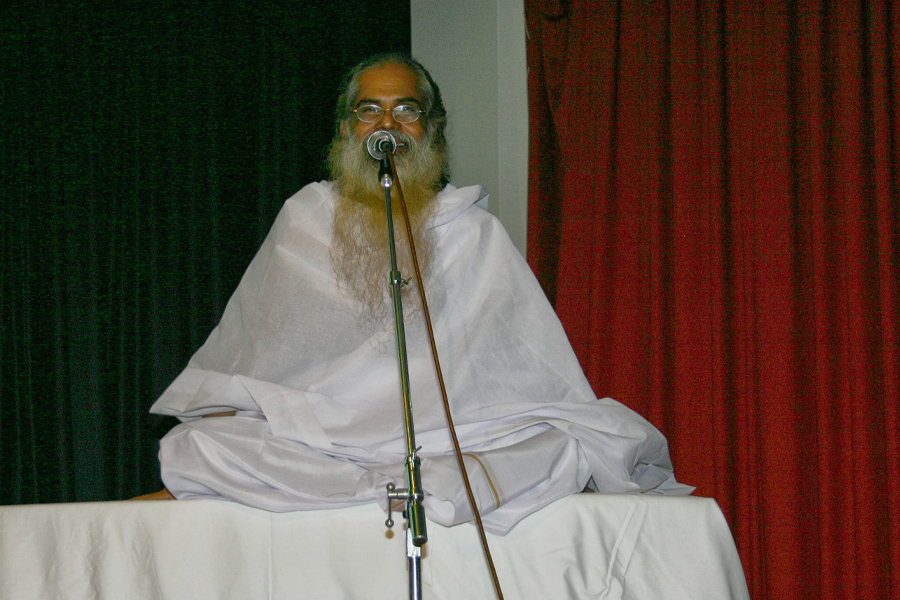 |
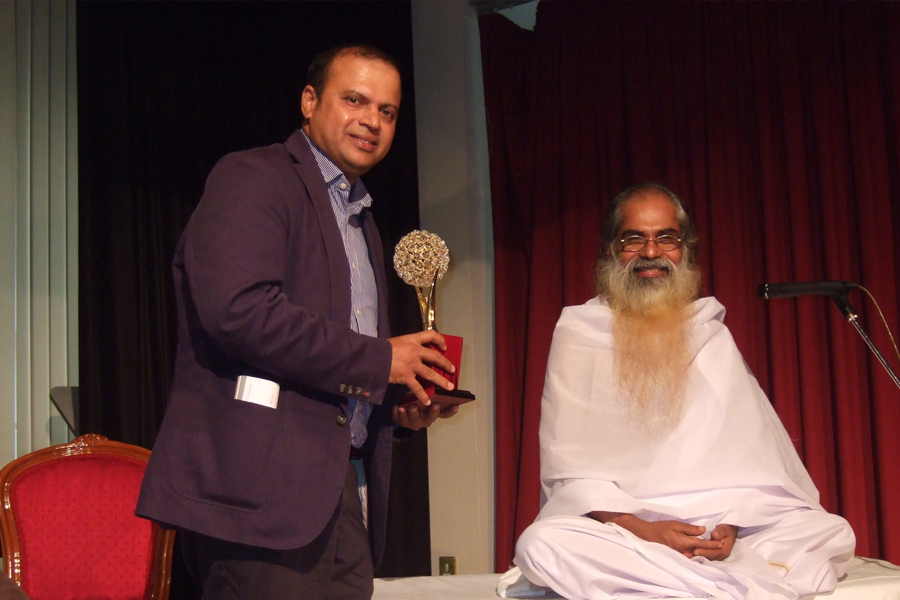 |
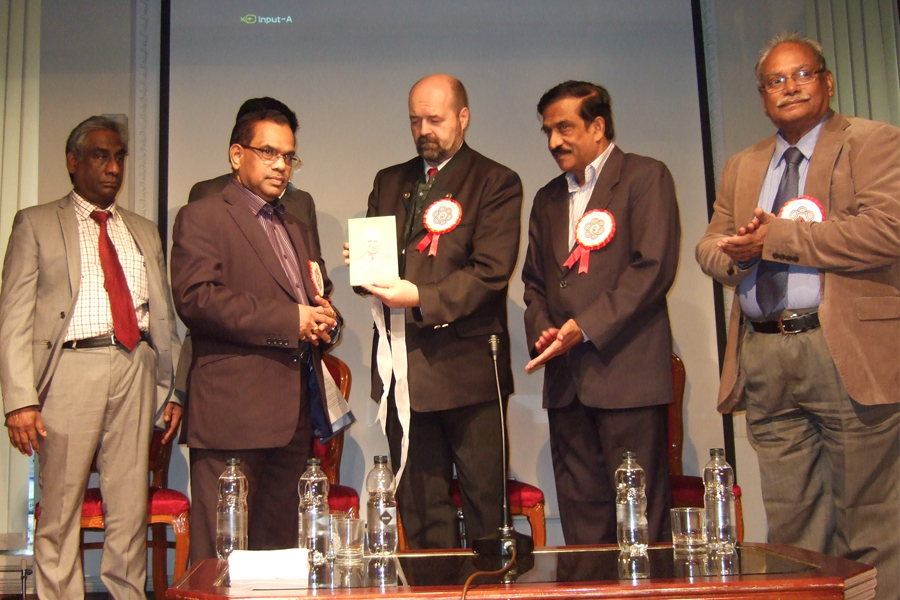 |
Economy: Jean-Francois Noubel, Founder of the Collective Intelligence Research Institute & Member of Meta Currency Project (France) presented “Integral Wealth” which embodies wealth across the whole spectrum. Integral wealth can be broken up into three categories: movable wealth (commodities, etc.), measurable wealth (quantifiable things of value such as blood pressure, or turnover in an office), and acknowledgeable wealth (subjective things one values, as in my feelings of pleasure or the trust with my community). Dr. Joseph, Professor of Business Studies, Glyndwr University, London (UK), called for more national regulation on corporations and banks, and for greater personal regulation of finances. Together, they make one step toward a more balanced economy.
Business: Lynne Carr, Founder, Alignment Works (UK) vision is that everyone in the world of business and commerce becomes spiritually connected through their business, making every email, meeting and financial transaction carried out in total integrity as an act of healing in the world. Julien Gueguen-Carroll, Advocate and Founder of G-C Avocats Law Firm (France) proposed that rather than only focusing on profit, businesses should look to redistribute their wealth, using their income for the benefit of people and the environment. He called this a “happiness business.” Jo Manuel, Founder of The Special Yoga Ltd, London (UK), shared her ultimate aim is to find a business solution to a social problem by creating a model that others can follow, based on the principal of service and love.
Education: Dr. K.A.H. Mirza, Hon. Senior Lecturer and Consultant Adolescent Psychiatrist at the Institute of Psychiatry, Kings College, London, presented “Creating a Sustainable Economy: Our Children Hold the Key.” proposed that more schools should include daily mindfulness meditation aimed at improving alertness, compassion and being in tune with the nature; appreciative inquiry to help children discover their skills; and techniques to help visualize their dreams. In addition to these, he argued for entrepreneurial skills and basic economic education to be introduced in schools so as to empower students to operate in a sustainable economy. Seethalakshmy Ananthanarayanan, Adult Education Tutor, South London College (UK) gave her support to the idea of “Education for Total Consciousness” and especially starting with children from a young age, providing the knowledge about energy and one’s relation with the universe. This would go a long way in creating the notion in society that abundance is everywhere and there is no need for violence and greed. Paul Grout, Founder, Creative Flow Evolution Programme (UK) gave a proposal for an educational programme to be introduced into schools, wherein students would have more support for developing creative skills.
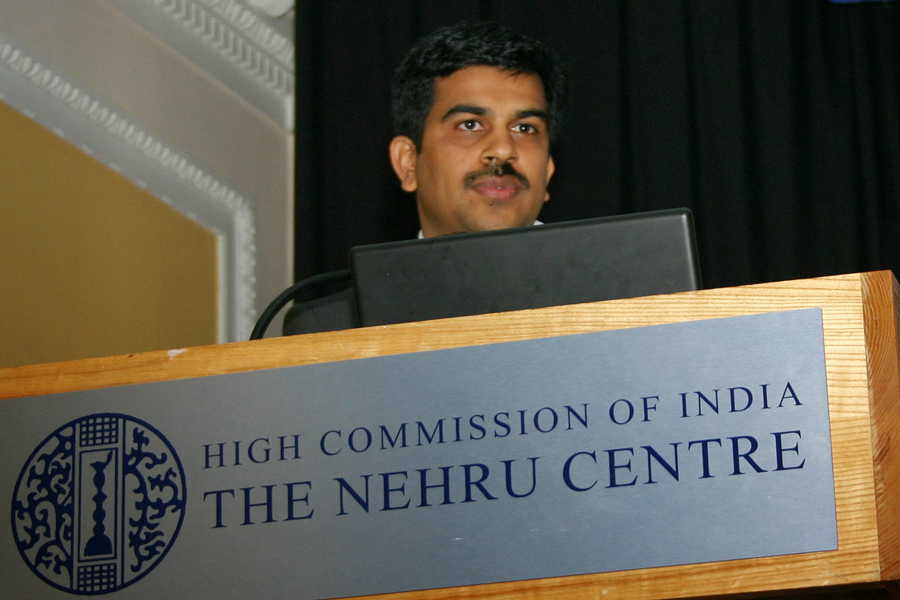 |
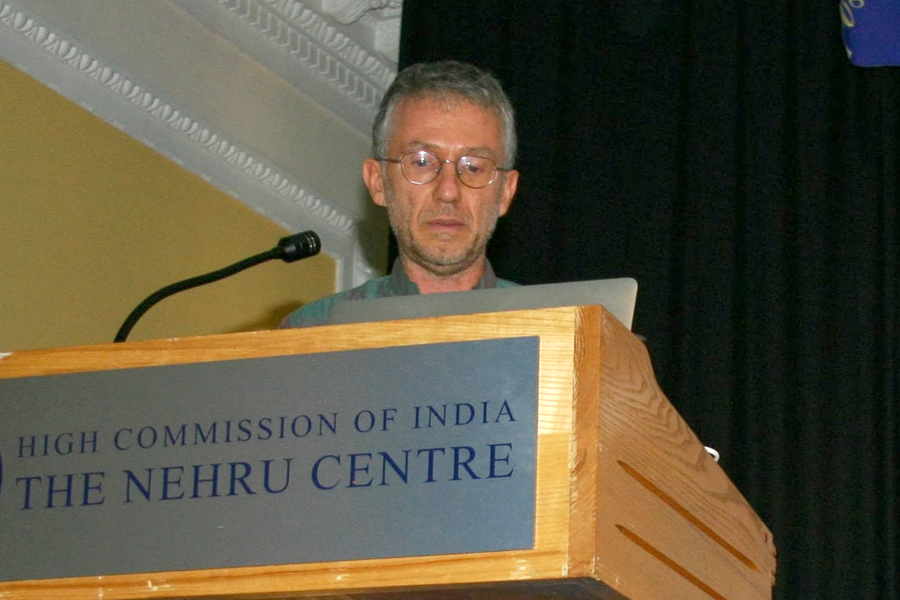 |
After the question period and passing of the above-mentioned Resolutions, the Closing Ceremony commenced with K. Mohan, Chairman of GEP UK, ceremoniously presenting new members with their Membership cards. All members present were administered the GEP Pledge.
GEP’s “Economic Literacy Project” was inaugurated by A.V. Subba Rao IPS, former Director General of Police of Kerala (India). The project is intended to be the first step for bringing to the broader public the ideas presented at this session, increasing their awareness about economy and a broader definition of wealth. The General Secretary of GEP UK Organizing Committee, T. Haridas, moved to form a National Energy Parliament for the United Kingdom.
A cultural session followed the programme in an evening on the display of “The Wealth of Sounds and Forms,” as Chris Puleston and his entourage of 8 musicians including tabla player Manoj Shiva, enraptured the audience. The 19 music was followed by a performance of South Indian Classical Dance and folk dance, displaying the wealth of various forms of culture.
